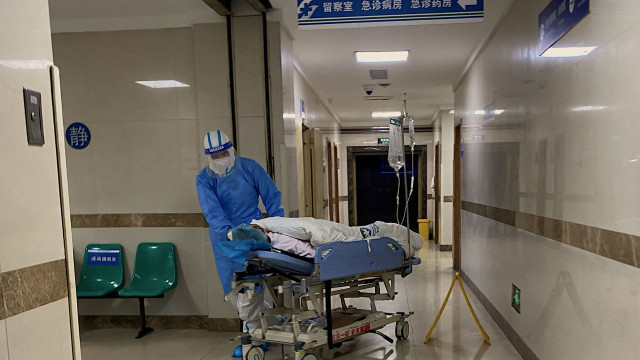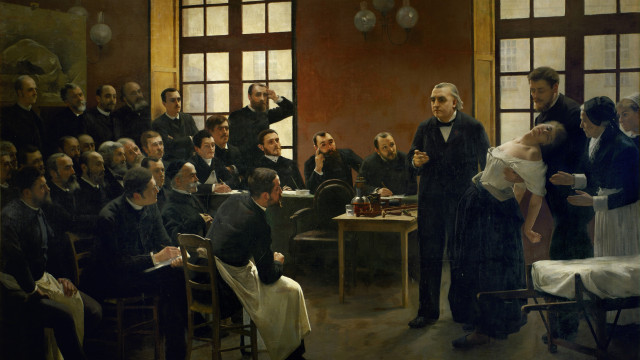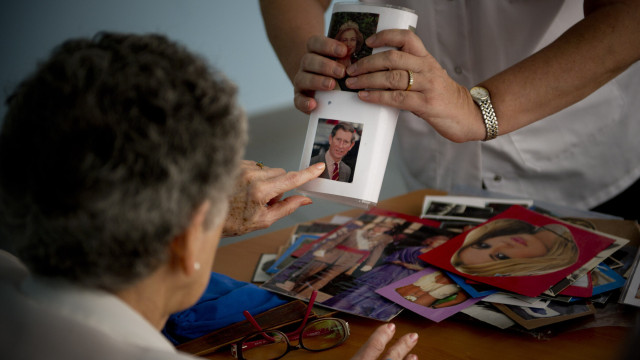




























See Also
See Again
© Shutterstock
0 / 29 Fotos
Not understanding medication dangers
- Drug toxicity can occur as a result of the over-ingestion of medication. In most cases, this could result in hospitalization.
© Shutterstock
1 / 29 Fotos
Taking too high a dose
- Even too much over-the-counter (OTC) medication could be dangerous. For example, high doses of Tylenol can cause serious liver damage, and pain medication can increase drowsiness.
© Shutterstock
2 / 29 Fotos
Taking too low a dose
- If you don’t take your meds as directed, you may be putting your health at risk. For example, to prevent deep vein thrombosis, you need to keep your blood at thinner levels. And that's done by taking the correct dosage of your meds.
© Shutterstock
3 / 29 Fotos
Not getting a medication schedule from your doctor
- It's important your doctor knows all your prescriptions, OTCs, and supplements, in order to come up with an approved list for when to take each of them.
© Shutterstock
4 / 29 Fotos
Taking your dose infrequently
- The body metabolizes a drug at a certain predicted rate, so taking them on the prescribed schedule is important to keep the level of medication in the body consistent.
© Getty Images
5 / 29 Fotos
Taking meds too often
- It's important to stick to the dosing times to avoid overtaxing your body. A 2018 study, by researchers at Boston University found that 15% of those who use non-steroidal anti-inflammatory drugs (NSAID), like Advil and Aleve, exceed the recommended dose in a one-week period. This can have serious side effects, like intestinal bleeding and even heart attacks.
© Shutterstock
6 / 29 Fotos
Cutting up your pills
- Unless your doctor or pharmacist tells you so, don't cut up your pills. Some pills should be taken whole, as they're made to release slowly, to protect your stomach, and to bind two medications together.
© Shutterstock
7 / 29 Fotos
Taking meds with food
- Food will affect how the drug is absorbed from the stomach into the body. Some may be absorbed too slowly or not as fully with food. Certain medications even need to be taken on an empty stomach.
© Shutterstock
8 / 29 Fotos
Or not taking them with food
- On the other hand, some medications may irritate the stomach, such as NSAIDs like ibuprofen. These are best taken with food to minimize any irritation.
© Shutterstock
9 / 29 Fotos
Not avoiding specific foods
- Even if you take your meds with a meal, you may not realize you should avoid certain foods. For example, certain meds shouldn't be taken with calcium-containing food, as they will affect how they are absorbed by the body. Also, the metabolism of several medications, including statins, is affected by the enzymes in grapefruit juice.
© Shutterstock
10 / 29 Fotos
Taking expired medication
- Taking a couple of headache pills slightly past their expiration date is probably alright. However, expired medication can be less effective, and even risky, due to changes in chemical composition and a decrease in strength. Therefore, it’s important to replace old medication.
© Shutterstock
11 / 29 Fotos
Not understanding your prescription label
- Prescription labels can be confusing, which is a big problem. Make sure you confirm everything with the pharmacist before taking your meds.
© Shutterstock
12 / 29 Fotos
Mixing prescription meds with certain OTC drugs or vitamins
- People think OTC meds are safe to take no matter what, but many of them can interact poorly with prescription drugs. Also, be careful mixing your drugs with vitamins. For example, taking heartburn meds with vitamins will make them both ineffective, as the body can't absorb them simultaneously.
© Shutterstock
13 / 29 Fotos
Mixing meds inappropriately
- Your meds could also be making you sick. This is particularly likely if you’re inadvertently counteracting or doubling up on them. Doing this can decrease the effectiveness of the medicines.
© Shutterstock
14 / 29 Fotos
Not knowing the names of your meds
- Studies show that people who know the names of their meds have better adherence to their regimen. They're also less likely to mix up their meds or take the wrong one.
© Shutterstock
15 / 29 Fotos
Not knowing what your medication is for
- You should know what each drug is for when you start taking it. Having an understanding of the condition that the med is being used to treat will help you see its importance.
© Shutterstock
16 / 29 Fotos
Not checking the label
- Pharmacists can sometimes make mistakes. Taking the wrong drug may cause an adverse reaction or leave your condition untreated. Therefore, it's important to check the label, and make sure the pills look the same each time you refill them.
© Shutterstock
17 / 29 Fotos
Taking other people’s meds
- Even if your friend swears by a drug, never take it if offered. The sharing of meds, such as powerful opioids, has resulted in patient harm, including death. The effect of a drug depends on the individual's medical condition and tolerance to the drug. Always seek the advice of a medical professional.
© Shutterstock
18 / 29 Fotos
Not taking your meds correctly
- It might seem obvious, but it's easy to mess this up. Some common mistakes include mixing up eye and ear drops, or chewing non-chewables. If you're not sure, always confirm with your pharmacist exactly how to take your meds.
© Shutterstock
19 / 29 Fotos
Taking too many meds
- Every time you add another medication, count on increasing the chances of side effects, adverse drug reactions, and drug-drug interactions. It's important to speak to your prescriber and pharmacist to fully understand the risks associated with taking multiple meds.
© Shutterstock
20 / 29 Fotos
Stopping your meds too soon
- Just because you feel better doesn't mean you can stop your meds. Stopping a medication abruptly can lead to severe consequences. For example, your blood pressure or blood sugar levels could spike if meds to manage them are stopped. With antibiotics, even if you're feeling better, the bacterial infection causing the symptoms is probably not yet eradicated until the full treatment is completed.
© Shutterstock
21 / 29 Fotos
Storing of meds incorrectly
- Medications, including OTCs, need to be stored accordingly to maintain their effectiveness. They may require a certain temperature range, and protection from light and humidity. This means not storing them in the bathroom where temperature and humidity changes.
© Shutterstock
22 / 29 Fotos
Picking up prescriptions from different pharmacies
- It may be convenient to have some prescriptions filled at a store by your job and others by a different pharmacy near your home. And that's fine if they're a chain. But getting drugs from different places prevents pharmacists from seeing the full picture of your meds and flag potential issues.
© Shutterstock
23 / 29 Fotos
Not minding your mood
- Many drugs, including birth control pills, blood pressure medication, and heartburn relievers, have possible side effects that include depression. If you notice that you're feeling moody, ask your doctor if your drug might be a culprit. You might be able to get a lower dose or a different medication.
© Shutterstock
24 / 29 Fotos
Measuring mistakes
- A study found that people who used a medium-sized spoon to pour liquid medication were likely to take too little. And those who picked a bigger spoon were more likely to overdose. Always use the cup, syringe, or other measuring tools that come with the drug.
© Shutterstock
25 / 29 Fotos
Mixing medicine and alcohol
- Sleeping pills, cold remedies, and other medicines that get you drowsy might make you even worse when mixed with drinks. Alcohol can also interact with some ingredients in medications and damage your liver.
© Shutterstock
26 / 29 Fotos
Skipping medication checkups
- If you take any prescription or OTC drugs, go over them yearly with your doctor or pharmacist. Especially if you're older or on several different meds.
© Shutterstock
27 / 29 Fotos
Disposing of meds incorrectly
- You need to dispose of unused meds according to governmental guidelines. Proper medication disposal is critical for reducing harm from accidental exposure and misuse by others. Sources: (The Healthy) (Woman's Day) (WebMD)
© Shutterstock
28 / 29 Fotos
© Shutterstock
0 / 29 Fotos
Not understanding medication dangers
- Drug toxicity can occur as a result of the over-ingestion of medication. In most cases, this could result in hospitalization.
© Shutterstock
1 / 29 Fotos
Taking too high a dose
- Even too much over-the-counter (OTC) medication could be dangerous. For example, high doses of Tylenol can cause serious liver damage, and pain medication can increase drowsiness.
© Shutterstock
2 / 29 Fotos
Taking too low a dose
- If you don’t take your meds as directed, you may be putting your health at risk. For example, to prevent deep vein thrombosis, you need to keep your blood at thinner levels. And that's done by taking the correct dosage of your meds.
© Shutterstock
3 / 29 Fotos
Not getting a medication schedule from your doctor
- It's important your doctor knows all your prescriptions, OTCs, and supplements, in order to come up with an approved list for when to take each of them.
© Shutterstock
4 / 29 Fotos
Taking your dose infrequently
- The body metabolizes a drug at a certain predicted rate, so taking them on the prescribed schedule is important to keep the level of medication in the body consistent.
© Getty Images
5 / 29 Fotos
Taking meds too often
- It's important to stick to the dosing times to avoid overtaxing your body. A 2018 study, by researchers at Boston University found that 15% of those who use non-steroidal anti-inflammatory drugs (NSAID), like Advil and Aleve, exceed the recommended dose in a one-week period. This can have serious side effects, like intestinal bleeding and even heart attacks.
© Shutterstock
6 / 29 Fotos
Cutting up your pills
- Unless your doctor or pharmacist tells you so, don't cut up your pills. Some pills should be taken whole, as they're made to release slowly, to protect your stomach, and to bind two medications together.
© Shutterstock
7 / 29 Fotos
Taking meds with food
- Food will affect how the drug is absorbed from the stomach into the body. Some may be absorbed too slowly or not as fully with food. Certain medications even need to be taken on an empty stomach.
© Shutterstock
8 / 29 Fotos
Or not taking them with food
- On the other hand, some medications may irritate the stomach, such as NSAIDs like ibuprofen. These are best taken with food to minimize any irritation.
© Shutterstock
9 / 29 Fotos
Not avoiding specific foods
- Even if you take your meds with a meal, you may not realize you should avoid certain foods. For example, certain meds shouldn't be taken with calcium-containing food, as they will affect how they are absorbed by the body. Also, the metabolism of several medications, including statins, is affected by the enzymes in grapefruit juice.
© Shutterstock
10 / 29 Fotos
Taking expired medication
- Taking a couple of headache pills slightly past their expiration date is probably alright. However, expired medication can be less effective, and even risky, due to changes in chemical composition and a decrease in strength. Therefore, it’s important to replace old medication.
© Shutterstock
11 / 29 Fotos
Not understanding your prescription label
- Prescription labels can be confusing, which is a big problem. Make sure you confirm everything with the pharmacist before taking your meds.
© Shutterstock
12 / 29 Fotos
Mixing prescription meds with certain OTC drugs or vitamins
- People think OTC meds are safe to take no matter what, but many of them can interact poorly with prescription drugs. Also, be careful mixing your drugs with vitamins. For example, taking heartburn meds with vitamins will make them both ineffective, as the body can't absorb them simultaneously.
© Shutterstock
13 / 29 Fotos
Mixing meds inappropriately
- Your meds could also be making you sick. This is particularly likely if you’re inadvertently counteracting or doubling up on them. Doing this can decrease the effectiveness of the medicines.
© Shutterstock
14 / 29 Fotos
Not knowing the names of your meds
- Studies show that people who know the names of their meds have better adherence to their regimen. They're also less likely to mix up their meds or take the wrong one.
© Shutterstock
15 / 29 Fotos
Not knowing what your medication is for
- You should know what each drug is for when you start taking it. Having an understanding of the condition that the med is being used to treat will help you see its importance.
© Shutterstock
16 / 29 Fotos
Not checking the label
- Pharmacists can sometimes make mistakes. Taking the wrong drug may cause an adverse reaction or leave your condition untreated. Therefore, it's important to check the label, and make sure the pills look the same each time you refill them.
© Shutterstock
17 / 29 Fotos
Taking other people’s meds
- Even if your friend swears by a drug, never take it if offered. The sharing of meds, such as powerful opioids, has resulted in patient harm, including death. The effect of a drug depends on the individual's medical condition and tolerance to the drug. Always seek the advice of a medical professional.
© Shutterstock
18 / 29 Fotos
Not taking your meds correctly
- It might seem obvious, but it's easy to mess this up. Some common mistakes include mixing up eye and ear drops, or chewing non-chewables. If you're not sure, always confirm with your pharmacist exactly how to take your meds.
© Shutterstock
19 / 29 Fotos
Taking too many meds
- Every time you add another medication, count on increasing the chances of side effects, adverse drug reactions, and drug-drug interactions. It's important to speak to your prescriber and pharmacist to fully understand the risks associated with taking multiple meds.
© Shutterstock
20 / 29 Fotos
Stopping your meds too soon
- Just because you feel better doesn't mean you can stop your meds. Stopping a medication abruptly can lead to severe consequences. For example, your blood pressure or blood sugar levels could spike if meds to manage them are stopped. With antibiotics, even if you're feeling better, the bacterial infection causing the symptoms is probably not yet eradicated until the full treatment is completed.
© Shutterstock
21 / 29 Fotos
Storing of meds incorrectly
- Medications, including OTCs, need to be stored accordingly to maintain their effectiveness. They may require a certain temperature range, and protection from light and humidity. This means not storing them in the bathroom where temperature and humidity changes.
© Shutterstock
22 / 29 Fotos
Picking up prescriptions from different pharmacies
- It may be convenient to have some prescriptions filled at a store by your job and others by a different pharmacy near your home. And that's fine if they're a chain. But getting drugs from different places prevents pharmacists from seeing the full picture of your meds and flag potential issues.
© Shutterstock
23 / 29 Fotos
Not minding your mood
- Many drugs, including birth control pills, blood pressure medication, and heartburn relievers, have possible side effects that include depression. If you notice that you're feeling moody, ask your doctor if your drug might be a culprit. You might be able to get a lower dose or a different medication.
© Shutterstock
24 / 29 Fotos
Measuring mistakes
- A study found that people who used a medium-sized spoon to pour liquid medication were likely to take too little. And those who picked a bigger spoon were more likely to overdose. Always use the cup, syringe, or other measuring tools that come with the drug.
© Shutterstock
25 / 29 Fotos
Mixing medicine and alcohol
- Sleeping pills, cold remedies, and other medicines that get you drowsy might make you even worse when mixed with drinks. Alcohol can also interact with some ingredients in medications and damage your liver.
© Shutterstock
26 / 29 Fotos
Skipping medication checkups
- If you take any prescription or OTC drugs, go over them yearly with your doctor or pharmacist. Especially if you're older or on several different meds.
© Shutterstock
27 / 29 Fotos
Disposing of meds incorrectly
- You need to dispose of unused meds according to governmental guidelines. Proper medication disposal is critical for reducing harm from accidental exposure and misuse by others. Sources: (The Healthy) (Woman's Day) (WebMD)
© Shutterstock
28 / 29 Fotos
Common medication mistakes you should avoid
These mistakes can have serious consequences
© Shutterstock
It's not unusual to make a mistake when you take your medication, especially if you take more than one and also have several health conditions. But an incorrect dose, the wrong drug, or misunderstanding the prescription label can lead to major medication mistakes. And although you might shrug it off, medication errors can land you in the emergency room with serious complications, and even result in death in some cases.
To avoid these common mistakes, check out the following gallery. You might be guilty of one or more of them!
RECOMMENDED FOR YOU

































MOST READ
- Last Hour
- Last Day
- Last Week








